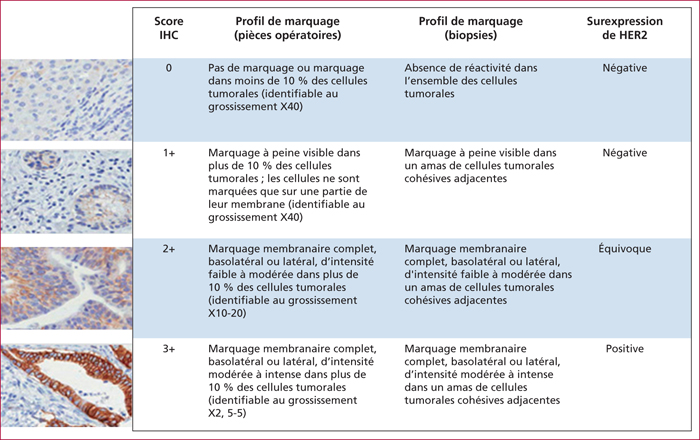Hépato-Gastro & Oncologie Digestive
MENUHER2 in esogastric cancer: clinical implications Volume 21, issue 7, Septembre 2014
- Key words: HER2, gastric adenocarcinoma, trastuzumab
- DOI : 10.1684/hpg.2014.1054
- Page(s) : 502-8
- Published in: 2014
Gastric cancer is the second most common cause of cancer death worldwide. Recent advances in molecular biology have shown that HER2 is overexpressed in 15 to 20% of oesogastric adenocarcinoma, and associated with a poor prognosis. Immunohistochemistry and in situ hydridization techniques enable to detect HER2 overexpression within tumor samples, but intratumoral heterogeneity of HER2 expression in gastric cancer leads to major difficulties for exact diagnosis. Since 2010 and ToGA trial, trastuzumab combined with platinum-based chemotherapy has been a standard of care for HER2-overexpressing metastatic gastric cancer patients. The benefit of trastuzumab in perioperative setting still needs to be demonstrated but preliminary results are promising. However, tumor resistances to trastuzumab treatment show that developing other targeted therapies is essential. Numerous anti-HER2 targeted therapies are currently being investigated, including tyrosine-kinase inhibitors such as lapatinib and monoclonal antibodies such as pertuzumab, and could contribute to improving gastric cancer patients’ survival in the future. This review lists present knowledge concerning HER2 physiopathology, its diagnosis methods and the current and future anti-HER2 therapies.


